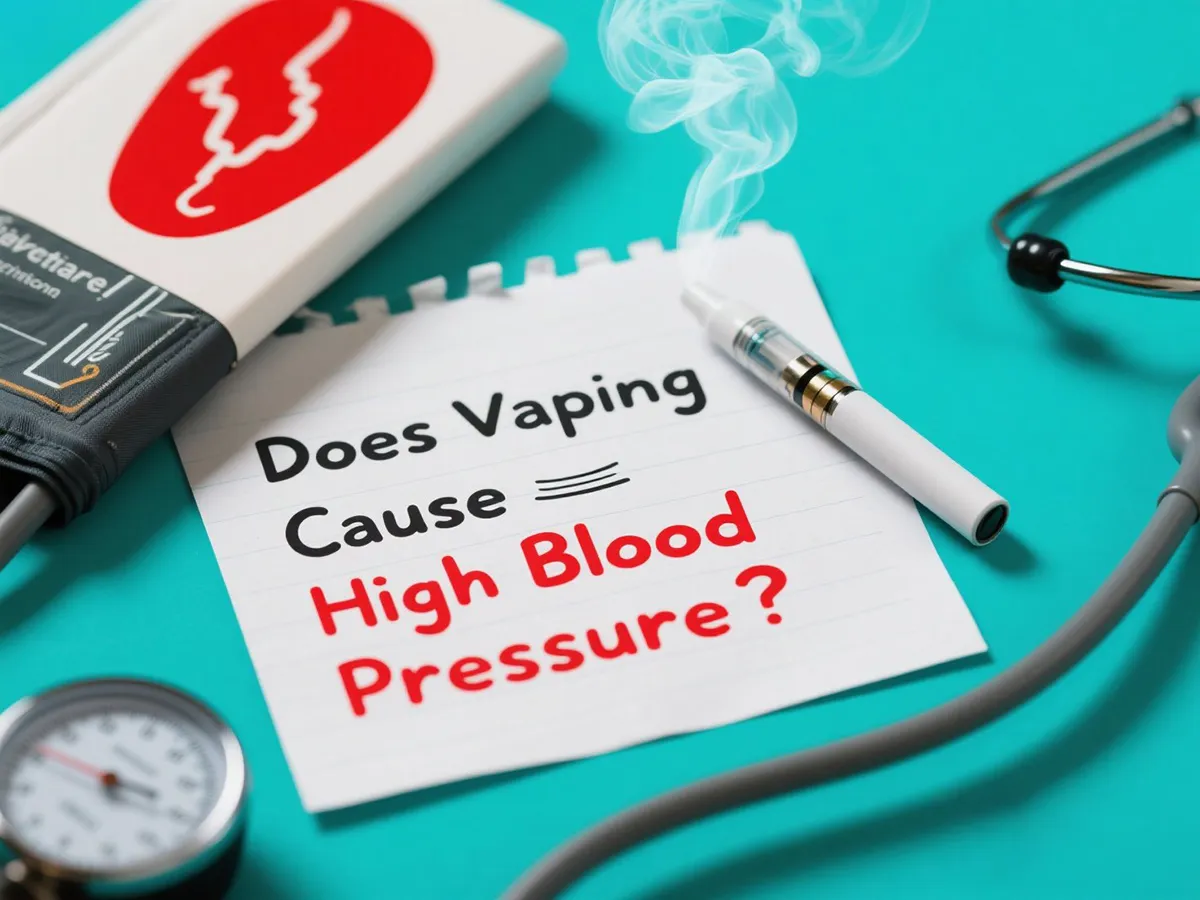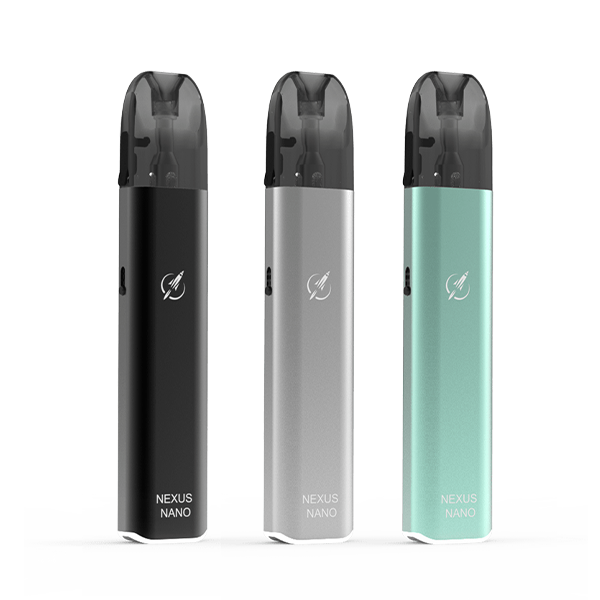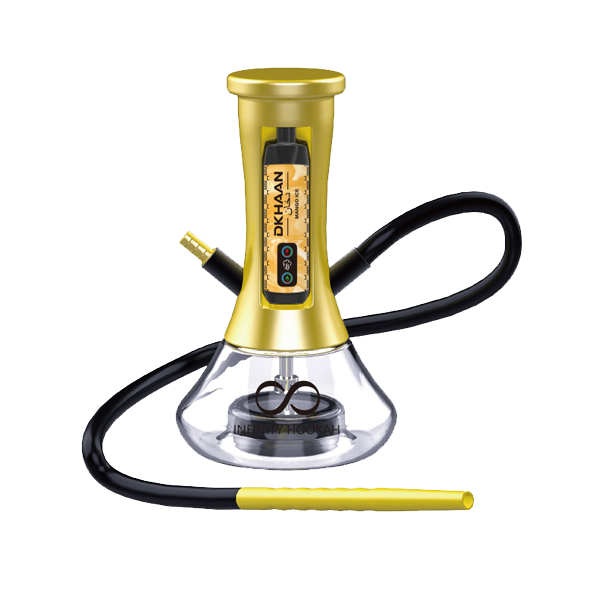Introduction: Exploring the Connection Between Vaping and Elevated Blood Pressure
While vaping has become a widely used alternative to traditional smoking, recent studies have raised concerns about its impact on cardiovascular health—particularly its potential to increase blood pressure. Scientific evidence indicates that vaping delivers nicotine and various harmful chemicals into the body, leading to both immediate spikes in blood pressure and the risk of long-term heart and vessel damage.
In this article, we’ll break down the latest scientific understanding of how vaping affects blood pressure, heart function, and overall cardiovascular health. Topics covered include:
The specific ways nicotine from e-cigarettes elevates blood pressure
The damaging effects of other chemicals found in vape aerosols on blood vessels
Comparing the short-term and long-term cardiovascular risks associated with vaping
How vaping’s impact stacks up against that of traditional cigarettes
Drawing from peer-reviewed research and expert commentary, this guide aims to provide reliable, science-based answers to the question: Does vaping raise your blood pressure?

Nicotine’s Role: How Vaping Impacts Blood Pressure
Nicotine is the primary agent in vaping responsible for increases in blood pressure. Once inhaled, nicotine is quickly absorbed into the bloodstream, where it prompts the body to release stress hormones such as adrenaline (epinephrine) and norepinephrine. This “fight or flight” response results in:
Narrowing of blood vessels (vasoconstriction)
An accelerated heart rate (tachycardia)
Increases in both systolic and diastolic blood pressure
Clinical Findings: Immediate Blood Pressure Changes Linked to Vaping
Clinical research consistently demonstrates that blood pressure can rise significantly in the moments following vaping, underscoring the potential cardiovascular risks even in the short term.
A systematic review of e-cigarette studies found that vaping causes:
| Blood Pressure Metric | Before Vaping | After Vaping | Change |
|---|---|---|---|
| Systolic BP (mmHg) | 122 | 127 | +5 mmHg |
| Diastolic BP (mmHg) | 72 | 77 | +5 mmHg |
These changes occur within 30 minutes of vaping and can persist for nearly an hour. Even short-term vaping can strain the heart and blood vessels, increasing the risk of hypertension.
Long-Term Dangers: Ongoing High Blood Pressure
Regular exposure to nicotine through vaping can result in chronic hypertension—a condition strongly linked to:
Heart disease
Stroke
Hardening and narrowing of the arteries (atherosclerosis)
Research published in the Journal of Hypertension indicates that continued e-cigarette use may cause endothelial dysfunction, meaning the blood vessels lose their natural ability to relax, increasing the risk for cardiovascular complications.
Toxic Chemicals in Vape Liquids and Their Impact on Heart Health
It’s not just nicotine that poses a risk. E-liquids also contain harmful substances that can damage the cardiovascular system:
Formaldehyde & Acrolein: Harm the lining of blood vessels, leading to increased inflammation and oxidative stress.
Propylene Glycol & Glycerin: When vaporized, these can create free radicals that disrupt blood vessel function.
Heavy Metals (Lead, Nickel): Exposure is associated with higher blood pressure and increased stiffness of the arteries.
What the Research Shows About Vaping and Blood Vessel Health
Reduced Nitric Oxide: Vaping limits the production of nitric oxide, a molecule critical for keeping blood vessels flexible and relaxed.
More Hydrogen Peroxide: Vaping increases this toxic byproduct, which can stiffen arteries.
Greater Blood Vessel Permeability: Damaged vessels are more porous, allowing harmful compounds into the bloodstream and fueling inflammation.
Over time, these effects can add up to a greater risk of hypertension and cardiovascular disease.
Short-Term vs. Long-Term Effects of Vaping on Blood Pressure
Short-Term Effects (within 30 minutes after vaping):
Systolic blood pressure increases by around 5 mmHg
Diastolic blood pressure rises by about 5 mmHg
Heart rate jumps by 10–15 beats per minute
Blood flow slows, reducing oxygen delivery to organs
Long-Term Risks (chronic use):
Ongoing high blood pressure (hypertension)
56% increased risk of heart attack compared to non-vapers
30% higher likelihood of stroke
Higher probability of developing atherosclerosis
Vaping vs. Smoking: How Do They Compare?
| Effect | Vaping (E-Cigarettes) | Traditional Cigarettes |
|---|---|---|
| Blood Pressure Increase | Yes | Yes |
| Heart Rate Increase | Yes | Yes |
| Altered Cardiac Function | Yes | Yes |
| Diastolic Dysfunction | Worse with Nicotine | N/A |
While vaping may seem “safer,” nicotine-containing e-cigarettes still pose significant cardiovascular risks.
Expert Recommendations: Protecting Your Heart Health
Given the evidence, health authorities recommend:
✔ Avoid vaping if you have high blood pressure – Nicotine exacerbates hypertension.
✔ Seek nicotine-free alternatives – If quitting entirely is difficult, consider FDA-approved nicotine replacement therapies (patches, gum).
✔ Monitor blood pressure regularly – Early detection of hypertension can prevent complications.
✔ Consult a cardiologist – If you experience chest pain, palpitations, or dizziness after vaping.
Conclusion: Does Vaping Cause High Blood Pressure?
Yes. Scientific research confirms that vaping, especially with nicotine, elevates blood pressure, strains the heart, and damages blood vessels. Both short-term and long-term use increase the risk of hypertension, heart disease, and stroke.
If you’re concerned about cardiovascular health, quitting vaping is the safest choice. For those seeking harm reduction, consult healthcare professionals for safer alternatives.
Looking for a better vaping experience? Explore LUCKEE Vape at luckeevape.com for high-quality, innovative products designed with safety in mind.

















